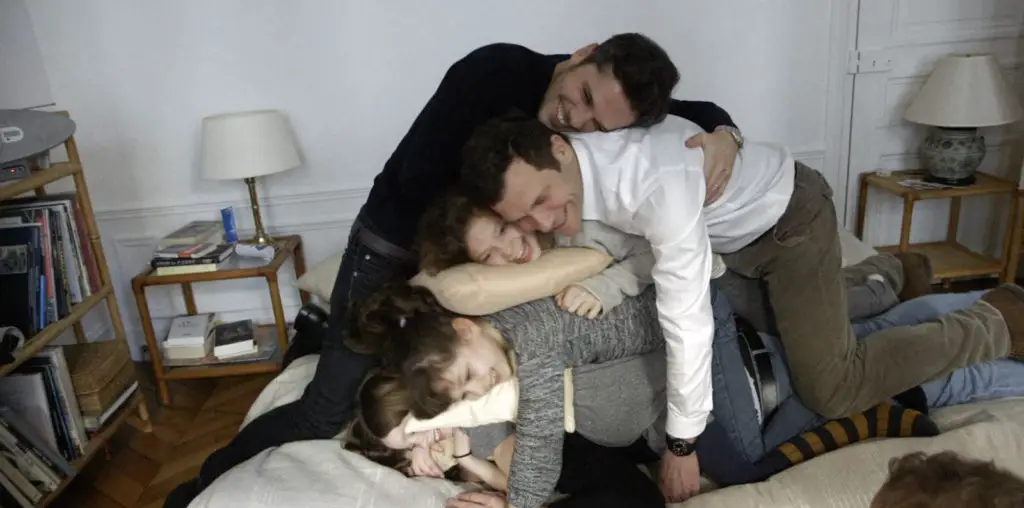
At home, Rosie (Scarlett Johansson) is a trying to raise Jojo as a single mom. She’s not sympathetic to the Nazis but doesn’t know what to do with her son, who is a true believer. Jojo’s father has been missing for two years and is said to be a deserter in the German army. His sister is dead, but he tries to fill the hole with his imaginary friend, Hitler (Taika Waitiiti), who, astoundingly, provides much of the comic relief in the movie.
Of course, given the subject matter, things can’t stay in the realm of comedy for long. Jojo starts to find out that the party line on Jews is nonsense, and he begins to have personal dilemmas about his family’s secrets. This comes to a head when Nazis raid his house, led by Stephen Merchant, in a wonderful homage to the lead Nazi in Raiders of the Lost Ark, Toht. At the Q&A after the screening, Merchant confirmed the obvious, that this is where he had based his performance, and noted that Raiders had shown that buffoon Nazis could actually be both funny and scary at the same time.

“…he begins to have personal dilemmas about his family’s secrets.”
Without spoiling anything, I will say that Jojo Rabbit goes to dark places. It has to — a pure comedy about WWII, and the Holocaust would never work. But the incredible thing is that it can come back from the darkness and still land funny moments that cut right to the core of the human beings trapped in all the horror and absurdity.
The real journey here is Jojo’s, and Roman Griffin Davis just nails every scene. He’s a kid to watch. Of course, with any acting performance, the director deserves a share of the credit, so kudos to Taika Waititi for the casting, editing, and playing the other side of so many of Jojo’s scenes as imaginary Hitler. Imaginary Hitler is a highlight of the film, and Waititi is amazing in the kind of role that most would be too afraid to take on. The boy / Hitler dynamic may seem flippant, but it is at the core of digging into the Nazi propaganda and tearing it apart with absurdity. That thread continues throughout the film as the desperation mounts, from the Nazis’ ridiculous stories about Jews to them using old men and children as soldiers, to their paper uniforms. There is a constant mocking, even as the Nazis are recognized as dangerous.

